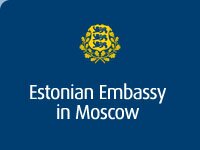Foreign Minister Urmas Paet: budget cuts must not affect European security
28.05.2012
Commenting on the results of the NATO summit in Chicago at the spring session of NATO’s Parliamentary Assembly in Tallinn, Foreign Minister Urmas Paet said that as far as the future is concerned, Estonia considers issues related to Afghanistan, defence spending, deterrent and defence capabilities, and cyber security to be most important.
Speaking about Afghanistan, Foreign Minister Paet said that a timetable for transferring security to Afghan forces was agreed upon in Chicago. “According to the timetable, we should have a situation by the summer of 2013 where the Afghan forces are responsible for security in the entire country and it is possible to conclude the mission of international security forces in the country by the end of 2014,” he said.
The Foreign Minister added that ending the military mission in Afghanistan does not mean the end of international support. “NATO has assured that the alliance continues to support the country via training, consultations and aid missions,” Paet said. Also, it is important to ensure the sustainable development of the Afghan security forces.
In his speech, Paet touched upon defence spending and expressed concern that the reduction of defence spending due to budgetary problems in European states could affect NATO’s capability to react to external threats. “According to the agreement, Estonia considers it important that defense spending accounts for 2 per cent of the GDP of NATO member states,” Paet said.
According to the Foreign Minister, contributing to the defence sector also assures the United States that Europe continues to be a reliable partner and makes a contribution to ensuring safety on an international level. “USA has demonstrated its dedication and places importance on its continued presence in Europe. Therefore, Europe must honour its commitments,” Paet stressed.
Toucing upon the issues of deterrence and defense, the Foreign Minister said that in order to ensure the capabilities of the alliance, the member states must engage in close and meaningful co-operation. “The air patrolling mission of Estonia, Latvia and Lithuania, which was once again approved for an indefinite period at the Chicago summit, is a great example of a wise common action of NATO states, helping member states to cut expenses by way of co-operation,” Paet said.
According to Paet, raising the visibility of NATO on its own territory is an important part of developing the alliance’s deterrence. “For example, holding regular exercises in various regions is a great opportunity for raising visibility,” he noted and added that already in 2013 the Baltic Sea region will host the NATO exercise “Steadfast Jazz 2013”.
In his speech, the Foreign Minister also highlighted NATO’s ability to react to various threats and its readiness to take on new challenges. “In today’s world, we must increasingly take note of threats that emerge in cyberspace, and therefore, issues of cyber security require more attention that they have received so far,” he said. NATO Cooperative Cyber Defence Centre of Excellence located in Tallinn is already engaged on a high-level in various issues of cyber defense; however, when it comes to cyber security, political issues also need attention in addition to technical aspects. “Political support and understanding must ensure that in the future, cyber security issues are taken into account in every NATO action,” he added.
The spring session of NATO’s Parliamentary Assembly takes place on 25-28 May in Tallinn. Additional information: http://tinyurl.com/c499qpy
PRESS SERVICE
637 7654
513 8689
 
|

